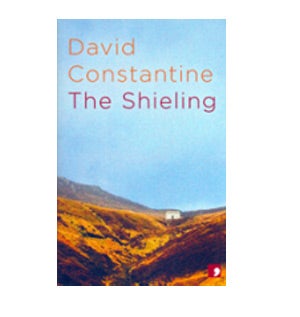The Shieling, By David Constantine
Life, death and healing with water

Your support helps us to tell the story
From reproductive rights to climate change to Big Tech, The Independent is on the ground when the story is developing. Whether it's investigating the financials of Elon Musk's pro-Trump PAC or producing our latest documentary, 'The A Word', which shines a light on the American women fighting for reproductive rights, we know how important it is to parse out the facts from the messaging.
At such a critical moment in US history, we need reporters on the ground. Your donation allows us to keep sending journalists to speak to both sides of the story.
The Independent is trusted by Americans across the entire political spectrum. And unlike many other quality news outlets, we choose not to lock Americans out of our reporting and analysis with paywalls. We believe quality journalism should be available to everyone, paid for by those who can afford it.
Your support makes all the difference.David Constantine's third short story collection is even stronger than his last, the powerful and exquisitely written Under the Dam. But The Shieling is so good I'll be surprised if there's a better collection this year. Not every tale succeeds – the title story is a curiously abstract piece – but when the best is as profoundly meaningful as "The Cave" or as intensely moving as "Words to Say It", the bar is set very high indeed.
Constantine's characters are complex and unpredictable, often damaged, sometimes broken, but water – which is everywhere – has restorative powers. Springs and wells abound. In "The Cave", the tentative lovers Owen and Lou overnight in the mouth of a limestone cavern. "And bubbles in hundreds meanwhile rode out through the slit on the cold rapid slide of water, lasting in the lighter darkness until they popped."
Sometimes water offers more threat than sustenance. In "Words to Say It", while swimming in the Aegean Sea, Ben has the awkward encounter that will shape his life; in "Wishing Well", the incoming tide presents real danger; and another character commits suicide at sea.
Constantine writes beautifully, breaking the rules. "The coal had been near the surface, their descent through the strata of sand and gravel did not take long." Arguably, the comma should be a semi-colon, but he writes with a poet's licence. "There is no liveliness of words comes anywhere near the life of life itself," he writes in "Beginning", about teenage love. Maybe not, but Constantine comes as close as anyone writing today.
Death is never far away, its proximity a reminder to live decently, happily. There are suicides and death is final, with one possible exception. Edward, in "The Man Who Said He Had Died", tries his wife's patience by insisting on the truth of his claim. Describe it, she demands. "As sorrow, he answered, sorrow, regret, an aching sort of love becoming grief." There is sorrow and there is grief, but also compassion, and when it comes, it is uplifting.
Join our commenting forum
Join thought-provoking conversations, follow other Independent readers and see their replies
Comments